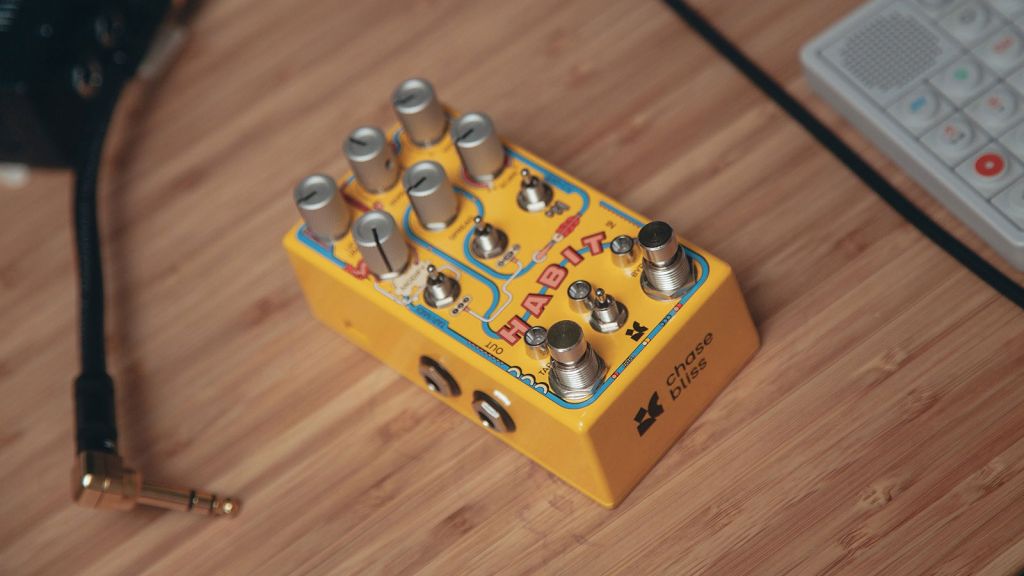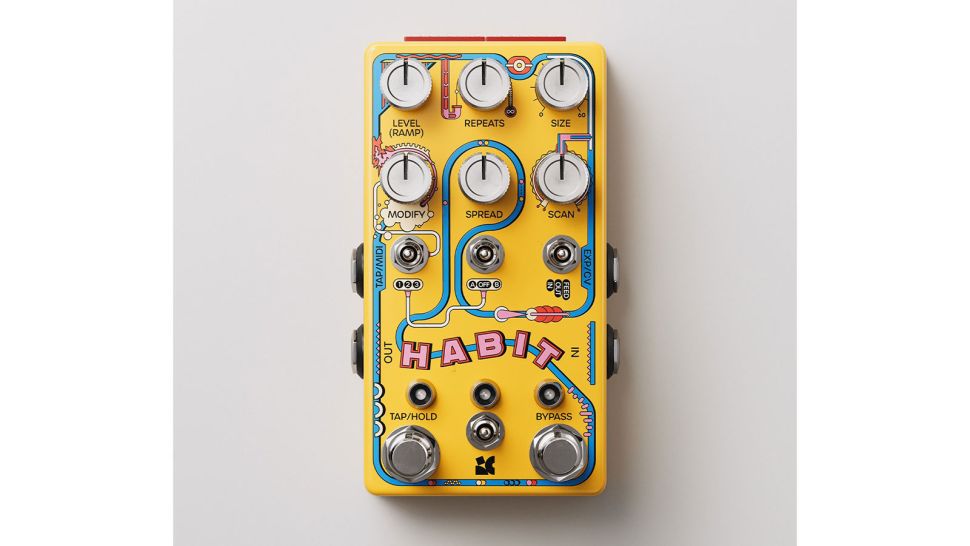Chase Bliss' bonkers Habit is an all-in-one delay pedal, looper, sampler and musical sketchpad
The new pedal offers extreme levels of sonic manipulation

Chase Bliss has unveiled its new Habit pedal, which at its core is a delay pedal, but offers a staggering number of ways to capture and manipulate your guitar sound for live loops, cascading sounds, synth-like textures and more.
Fundamentally, Habit is a delay pedal with a huge 60-second delay time. It includes standard level (delay volume), repeats (feedback) and size (rate) controls, plus functions we’re accustomed to such as tap-tempo. But that’s pretty much where the similarity to your common-or-garden echo box ends.
That’s because Habit is also loaded with tons of features, allowing you to employ it as an extremely creative sound-shaper or compositional tool. It’s always recording to its ‘virtual tape loop’, so once you start playing you’ll amass a 3-minute library of audio which you can then scan and use to create loops and phrases, which are then manipulated by a huge array of modifiers and controls.
The secondary row of controls - modify, spread and scan - are key to this. Scan allows you to select sections of audio from your virtual tape loop, spread introduces an additional echo, allowing for stacked and parallel repeats, while the modifier control is linked to the toggle switches below.
Here, you have a selection of three modifiers, with an additional toggle switch for A/B or off, and a final toggle with In/Out/Feed controls. This switches the way the audio is routed internally, giving you multiplied signals into your modifiers with each repeat on the In position, or more straightforward, consistent sounds in the Out position, while Feed sends the whole lot from the pedal’s output back into its input for sonic chaos.
Habit offers ‘live’ modes, where its controls are representative of what’s actually happening, plus there are two preset slots, all of which is accessed from the toggle switch in between the footswitches. Talking of footswitches, these play multiple roles too. As well as the tap and bypass functions, holding down the tap switch begins the Habit’s scan function in a similar way to the Scan knob. Pressing and holding the bypass switch applies a loop to the echoes, and pressing both switches together clear the pedal’s memory.

Habit includes six modifiers, stored in two banks - A and B, with three modifiers in each bank. What’s more, each modifier has different behaviours depending on where you set the Modifier control knob. For example, Modifier A1 is a pitch-based delay offering fifths and octaves, and turning the control from the centre position changes the speed and playback direction - clockwise for forward playback, anti-clockwise for reverse delay.
Want all the hottest music and gear news, reviews, deals, features and more, direct to your inbox? Sign up here.
Confused? Well, take a seat because it doesn’t end there. On the front edge of the pedal are two banks of 8 DIP switches, all of which affect the pedal’s behaviour when it comes to scanning, collecting and processing the delay’s memory. In addition to this, you can connect an expression pedal and external tap tempo switch, as well as control the Habit over MIDI.
There’s a lot going on, and it’s a lot to take in, but check out the demos above to hear exactly what sort of creative results are possible.
The Chase Bliss Habit is available now for $399.

Stuart has been working for guitar publications since 2008, beginning his career as Reviews Editor for Total Guitar before becoming Editor for six years. During this time, he and the team brought the magazine into the modern age with digital editions, a Youtube channel and the Apple chart-bothering Total Guitar Podcast. Stuart has also served as a freelance writer for Guitar World, Guitarist and MusicRadar reviewing hundreds of products spanning everything from acoustic guitars to valve amps, modelers and plugins. When not spouting his opinions on the best new gear, Stuart has been reminded on many occasions that the 'never meet your heroes' rule is entirely wrong, clocking-up interviews with the likes of Eddie Van Halen, Foo Fighters, Green Day and many, many more.